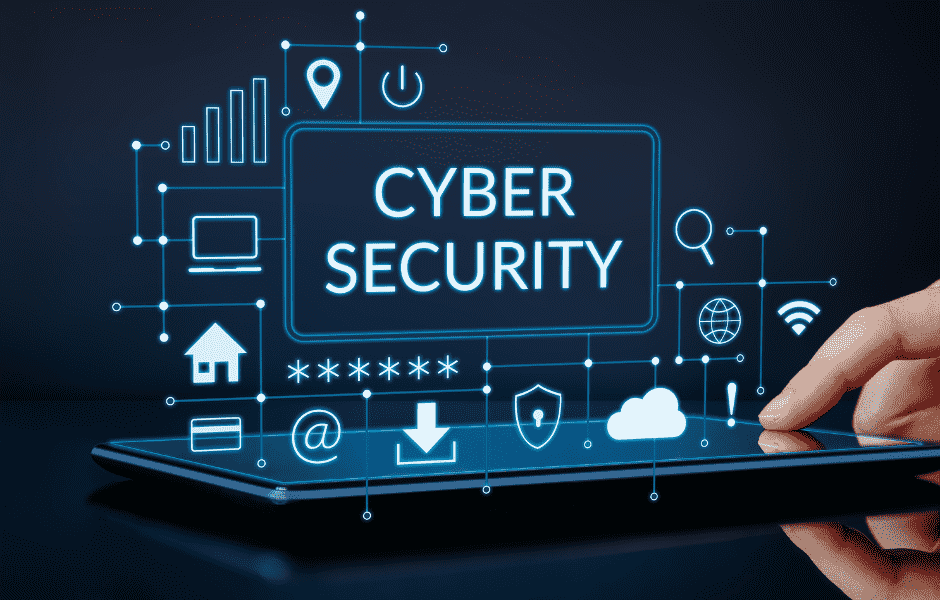Cyber security is becoming increasingly important in this digital age. As technology advances, so does the ability of cyber criminals to access sensitive information and wreak havoc on your digital life.
Why is cyber security necessary?
Cyber security is necessary because it protects an organization or individual from attacks, malicious software, unauthorized access to data, and other cyber threats. Cyber security is essential to protect confidential information, intellectual property, and other assets. It also helps to ensure the availability of services and the integrity of data. Cyber security is critical to protect businesses, government entities, and private citizens from cyber criminals and hackers.
How to protect from cyber attacks?
To protect yourself, it is essential to stay up to date on the latest cybersecurity best practices. Here are 17 tips for cyber security you must know to stay safe and secure in the digital world.
1. Implement Strong Passwords
Weak passwords can be easily hacked, so it’s important to create unique and complex passwords for all of your accounts. Make sure to use a combination of upper and lower case letters, numbers, and symbols and avoid using easily guessed words.
2. Use Two-Factor Authentication
Two-factor authentication is a great way to add an extra layer of security to your accounts. This requires you to verify your identity with a code sent to your phone or email.
3. Regularly Update Your Software
To ensure you have the latest security updates, make sure to regularly update your operating system and other software. This will help protect you against the latest security threats.
4. Backup Your Data
Data loss can be devastating, so it’s important to back up your data regularly. You can use cloud storage or an external hard drive to store your data in a secure location.
5. Use a Secure Wi-Fi Network
Make sure only to use secure Wi-Fi networks, as public networks are more vulnerable to cyber attacks. Make sure to always use a Virtual Private Network (VPN) when connecting to public Wi-Fi.
Also Read: What is Blockchain Technology
6. Be Aware of Phishing Scams
Phishing scams involve attempting to trick you into revealing sensitive information, such as passwords or credit card numbers. Be suspicious of emails or links that seem suspicious and never provide personal information.
7. Avoid Downloading Unknown Files
Unknown files can contain malicious software or viruses, so it’s important to avoid downloading them. Only download files from trusted sources or websites.
8. Use Encryption
Encryption is a great way to protect sensitive data. This prevents unauthorized users from accessing your data, even if they manage to breach your security.
9. Monitor Your Accounts
Monitor your accounts regularly for any suspicious activity. If you notice any unusual activity, contact your bank or credit card company immediately.
10. Use a Firewall
Firewalls are a great way to protect your computer from malicious software and viruses. Make sure to install a reputable firewall and ensure it is kept up to date.
11. Disable Remote Access
If you have remote access enabled on your computer, it is important to disable it when not in use. This will prevent unauthorized users from accessing your data.
12. Use Antivirus Software
Antivirus software can help detect and remove malicious software from your computer. Make sure to use a reputable and up-to-date antivirus program.
13. Beware of Social Engineering
Social engineering is a technique used by cybercriminals to gain access to sensitive information. Be aware of any suspicious emails or messages, as they could be an attempt to gain access to your accounts.
14. Be Careful about What You Post Online
Be careful what you post online, as it can be used to target you for cyber attacks. Avoid posting personal information or revealing details about your life that could be used to access your accounts.
15. Use a Secure Browser
Make sure to use a secure browser, such as Google Chrome or Mozilla Firefox, when accessing the internet. This will help protect you against malicious software and viruses.
16. Use a Password Manager
Password managers can help you create, store, and manage complex passwords. This will help protect your accounts from being hacked.
17. Monitor Your Credit Report
Regularly monitor your credit report for any suspicious activity. This will help you identify any potential fraud or identity theft.
Which is a best practice that can prevent viruses?
Following these cyber security protection tips will help you protect yourself from cyber threats and ensure you stay safe and secure in the digital world. However, it is important to remember that the best defense against cyber attacks is to stay informed and take proactive measures to protect yourself.
Remember, a few simple steps can help protect your data and reduce the risk of becoming a victim of a cyber-attack from best it consulting service. Investing in strong cyber security measures and staying informed about the latest threats can help keep your online activities safe and secure.




